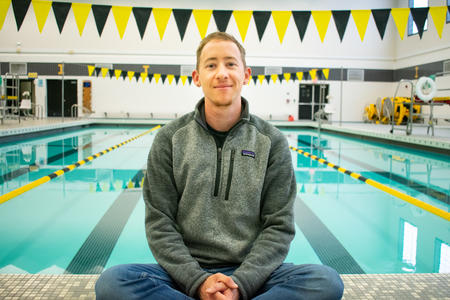Nov. 4, 2008, and a new set of questions.
The scene: I'm at an Obama party. The room is filled with white people.
And this may not be a corrected — or even a kind — thing to say, but all of us here have never lived around black people, never had our children play with black children after school. I'm not trying to prove anything by saying this. It's just a fact. Like the color of my hair — or, at least, the color I was born with.
Yet here we are, gathered and pouring champagne for a man that seems the best kind of man the world can deliver us. Black or white, rich or poor, old or young, we say, what we share tonight is this: When Barack speaks, we trust. How good it feels to say this! As if I've just walked out of a long, dark tunnel. Is this the same feeling a writer had when he coined the phrase The Dark Ages? I wonder.
Still, here at the party and cheering on the Electoral College, the difference from how I thought about race-prejudice just yesterday, and now, is expanding. But why? It feels, strangely, as if I'm even more conscious of what lies ahead in terms of confronting, say, my own father's stone-age prejudices, or this looming question: Is it just as bigoted to walk away from a time-honored closeness because a friend adamantly said to me, "This country is not ready for a black president!" and I knew she meant she was not ready? Do I remember that she has stood by me through a decade of thick and thin, and accept her just how she is, prejudice and all, which is the only way a friendship has a chance of enduring?
Or, standing here next to an elderly woman obviously as happy as I am to see the votes tally up, and I hear her say, "I can't believe we just elected a colored man!" Do I correct her? Or do I let it go? In my hyper-awareness of what her choice of word says about how far we still need to go (also because I'm a little drunk), I correct her. And I've regretted it every second since.
Aside from these many questions, or because of them, still, my favorite part of the evening, even after an election victory that separates our past from all there is to come, is meeting the Pakistani cab driver who drove me home after the party. The way he hustled over while yelling at the other cab driver who also wanted my fare, a Sikh whose white turban suddenly paled compared to the ferocious redness his face became as he verbally fought back, reminding me how business is done in most of the world, no matter how much Seattle has buffered me from such open fighting for turf, callow as this may sound.
"Hold on guys," I said, not wanting to return home guilt-ridden after such a celebratory night just because I'm forced to choose one needy taxi driver over another. I've become this sensitive, carrying around the burdens of the world when these two men handle their vying just fine, throwing up their arms and moving on.
Once on our way, my driver, very social and well-mannered to me, laughed after I whined about the past eight years of American politics. Then, after inhaling a rather large breath, he wagged his finger and said, "There is no room for self-pity in life. You must be grateful. Here in this great country of yours, you elect a bad president, you admit it, then you elect a good man, all in eight short years. This is wonderful! In my country it has been bad for centuries."
I reached for my notebook so I could write that down, thinking why do we Americans fault ourselves so? Why does it take an immigrant to make me see how tired I am of complaining about my country while forgetting to appreciate its admirability, an exhaustion much greater than my ability to cope with it?
"You are right," I said. "I won't complain about the past. I'm just going to revel in what is to come."
"It would be a start," he said politely.



